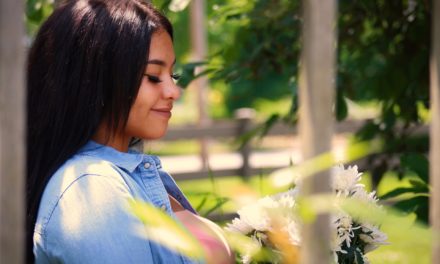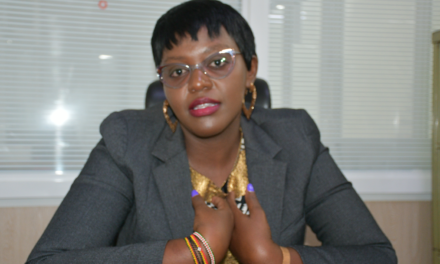
A mother or not, every woman is complete!
By Wairimu Chege
The mothers’ day craze is here with us, as is the norm, we celebrate all who either chose to be mothers or became mothers unknowingly or by circumstance.
All surrogate mums, adoptive mums, and all women who became mums by whatever form, we celebrate you. Raising a human is hard work! It takes more than just the will.
As girls’ grow up, the assumption of eventual, inevitable motherhood is imprinted in their heads and hearts at a very early age. Most conversations showcase motherhood as a milestone, more of a routine in the life of a woman than a choice. Most conversations and or advice given is preceded by “when you have children” instead of “ if you have children.” We are raised believing that motherhood is something that happens to everyone, and in most African homes we are brought up thinking that we should not only have children but naturally. Most of the other options are never tabled in motherhood conversations, they are instead discussed in low tones as a taboo, including adoption and surrogacy, except for these changing generations.
We are brought up believing that motherhood is the highest calling in a woman’s life, but there is more to life than just motherhood. It is very well-intended, but very misleading and could be so damaging to some of the women in adulthood. Without a doubt, motherhood is very important, we would obviously not be here were it not for them, but it is not for everyone and women should be allowed to make the choice without judgment.
As Wanjiku narrates, her desire not to have children has cost her friendships, relationships, and even family. Everyone wonders where she took up that from, they wonder how much of an outcast could she be? When she was young, they kept telling her she would change her mind as age catches up, but, her firm decision remains. “Everyone decides to have or not to have children because of their own personal reasons. I have never been excited by the idea of even being pregnant! The idea that it will alter my body, alter my schedule, my finances, limit my activities and make me have to take care of another human may not be what I envision for myself.” Apart from lacking maternal urge, Wanjiku felt that children may take up too much of her time and finances, and she couldn’t bring herself to live that kind of life. Dating in this kind of situation is not usual. In the African setup, you would not expect to go on a date where a woman asks your opinion on children, but in this type of set up, you have to ask and be sure you are on the same page.
There are several reasons why people choose not to be mothers. Others may have been brought up by absent mothers, toxic mothers, or may have been abused while growing up and some may just make a decision not to have children just because they don’t want to. There is a group of women who have been forced to raise their younger siblings and relatives, hence making them feel drained and make decisions not have their own children. Choosing to be childfree is not selfish, it is just a choice like any other.
In the African culture, childfree by choice, or circumstance is still a very sensitive topic. In a world where birth rates are at a reduced rate and maternal doubts are on the rise, why should women who deliberately choose not to have children be judged? The African culture still fixes women who don’t want children in a corner of judgment, if a woman does not want children, it is offensive. If a woman has too many children it is offensive, if a woman has children with different men it is offensive, this throws women off. There is really no right way to be a woman especially when it concerns our reproductive choices.
Since we have been brought up to believe that motherhood is a must, most women did not make the choice, they followed tradition, hence, we secretly have women who regret having children. Not because they hate them, but because they have discovered it is not what they expected and not what they would have wished for. We need to stop making women who decide to be child-free look a little suspect. We need to start embracing this discussion with minimal or no judgment at all to reduce the rates of regretting mothers, absentee mothers as well as bringing up struggling children who feel unloved.
Women need to create inclusivity for doubts, insecurities, struggles, and vulnerability that come with choosing to be child-free instead of judging each other. We need to normalize having the childfree conversation with men we intend to have long term relationships with to ensure that we are on the same page, and for the men, they should stop hanging around women who already mentioned they have chosen to be childfree with the hope that they will change their minds later. This should also be known to families and hospitals. It is important to stop asking women when they get children and also stop stigmatizing women who are childfree by choice or by circumstance. The avenue for women to make more informed decisions regarding their lives cannot exist if we do not start having open discussions surrounding maternal-related things. It is time to challenge the taboo and reframe womanhood.
We also need to make inclusive other ways to be mothers in our conversations even as we raise our girls. The emphasis on biological motherhood is a tad insulting to the people who became parents through other means like surrogacy, adoption amongst others. It is important to create room for all kinds of parents as well as for the people who choose to be child-free. With the changing versions of families, including the increased visibility of LGBT parents, the preconceived notion of what constitutes a family is weakening the traditional view that all women must be mothers.
Choosing to be childfree is a choice like any other! Respecting women and how they handle their fertility and what they decide to do with their own bodies is a good move. There is no perfect way to be a woman and we should not guilt-trip women for making choices that affect their reproductive health. A mother or not, every woman is complete.






















Recent Comments